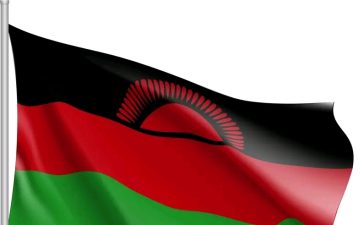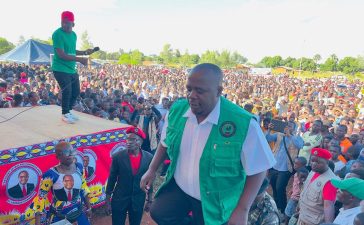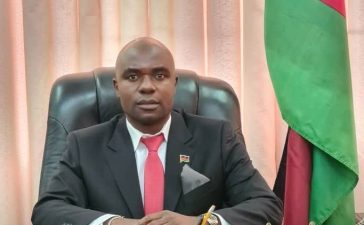Controversy has erupted within the Democratic Progressive Party (DPP) following national publicity secretary Shadreck Namalomba’s endorsement of Alfred Gangata as President Peter Mutharika’s running mate for the upcoming 2025 elections. This unexpected endorsement has ruffled feathers, particularly among party members from the Northern region, who are now questioning the legitimacy of the decision and suspecting that President Mutharika influenced Namalomba’s choice.
Members from the Northern region have expressed their outrage, demanding clarification from party leadership. They argue that Namalomba’s unilateral decision bypassed established party protocols and disregarded the democratic processes that should involve consultation with regional structures. Many feel that such actions undermine the principles of representation and inclusivity that the DPP claims to uphold.
Jappie Mhango, a notable figure within the party, referred to the endorsement as an act of insubordination. He emphasized that the decision exceeded Namalomba’s authority and highlighted the growing discontent within the ranks. “This endorsement does not reflect the consensus of our members in the Northern region,” he stated. “We cannot allow decisions to be made in isolation; our regional structures must be respected.”
The friction within the party comes on the heels of the DPP’s recent elective convention in Blantyre, where Gangata was elected as Vice President for the Central region. This regional appointment was met with acceptance, but the move to endorse him as a potential running mate seems to have triggered a backlash among Northern region legislators, many of whom have previously denounced endorsements from senior officials, including former President Mutharika.
The controversy surrounding Namalomba’s endorsement has unveiled deeper issues within the DPP, raising questions about the party’s commitment to democratic processes and the autonomy of its various regional factions. “It’s essential that we maintain a united front as we approach the 2025 elections,” a member from the Northern region remarked. “If we are divided, we risk losing the support of the voters who expect coherence and solidarity from their leaders.”
As the DPP gears up for the upcoming elections, it remains to be seen how this internal strife will affect the party’s chances at the polls. Observers believe that addressing these divisions promptly and effectively is crucial for the DPP to regain voter trust and present a cohesive vision for the future. With the endorsement controversy still fresh, party leaders will need to act quickly to mend fractures and restore confidence among their membership.













